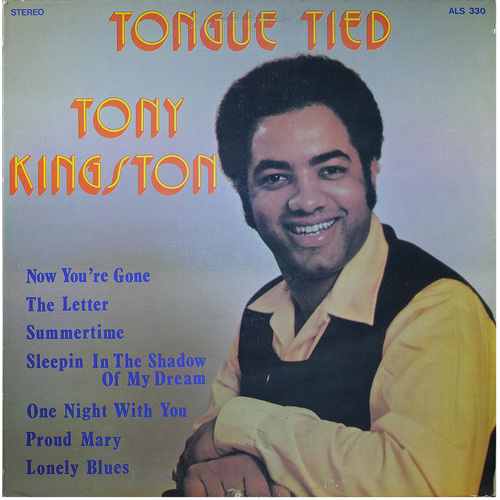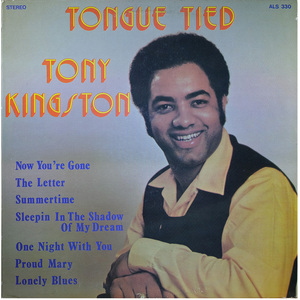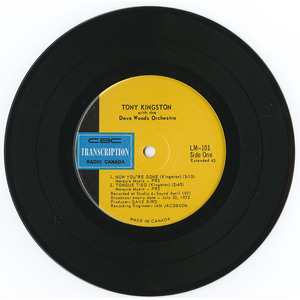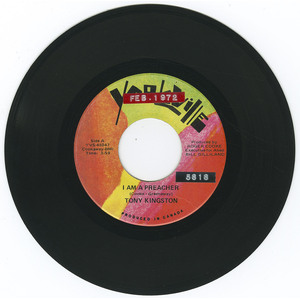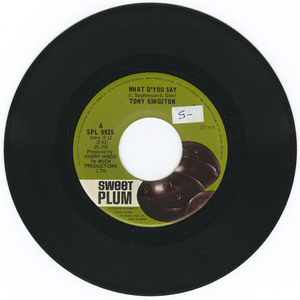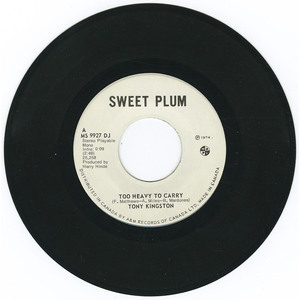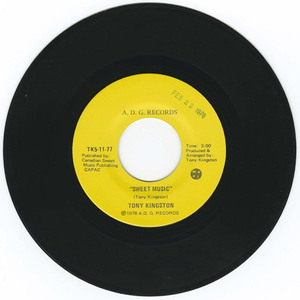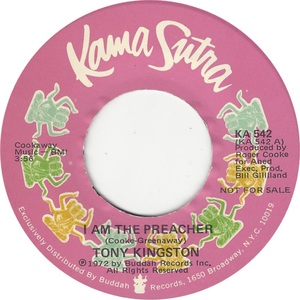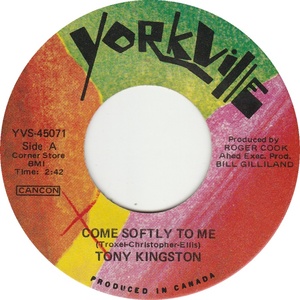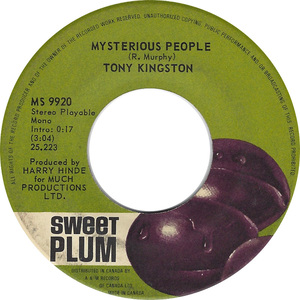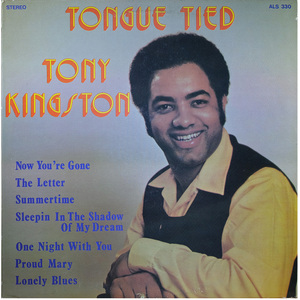Kingston, Tony
Websites:
No
Origin:
Kingston, Jamaica - Toronto, Ontario, 🇨🇦
Biography:
Anthony Mossop: The Multifaceted Life of Tony Kingston, Tony Mossop, and Tony Tribe
Anthony Mossop, known professionally by the aliases Tony Kingston, Tony Mossop, and Tony Tribe, was a versatile artist whose career traversed multiple countries and musical styles. Each stage name signified a unique chapter in his journey, showcasing his adaptability and creative evolution. Though his career faced challenges and setbacks, Mossop’s contributions to reggae, soul, and R&B remain undeniable, with his Canadian recordings preserved and available for exploration on Citizen Freak.
From Jamaica to the UK: Early Life and Career
Born on October 9, 1943, in Kingston, Jamaica, Anthony Mossop showed an early talent for music. By age eight, he was singing, and by nine, he had performed at Kingston's Ward Theatre. In 1956, his family relocated to London, England, where Anthony continued singing in church and at local events.
During the mid-1960s, he joined The Soul Seekers, a gospel group where his charisma and vocal talent drew significant attention. After leaving the group in 1966, Anthony pursued a solo career under the name Tony Kingston, signing with Decca Records. His debut single, Mama Come On Home/Agony and Ecstasy (1967), failed commercially but later gained recognition in the Northern Soul circuit.
Reggae Breakthrough as Tony Tribe
In 1969, under the name Tony Tribe, Mossop recorded a reggae rendition of Neil Diamond’s Red Red Wine. Produced by Dandy Livingstone and released on Trojan Records, the track reached #46 on the UK Singles Chart, becoming Trojan’s first chart success. Though marred by a label typo that listed him as "Tony Tripe," the song influenced UB40’s globally successful 1983 version.
Mossop’s performance at the Caribbean Music Festival that same year, alongside reggae legends like Jimmy Cliff and Desmond Dekker, solidified his place in the genre’s history. However, subsequent singles, including Gonna Give Her All the Love I’ve Got, failed to replicate his initial success.
A New Chapter in Canada
In 1970, Mossop emigrated to Toronto, Canada, where he resumed his career as Tony Kingston. He quickly became a fixture on the local club circuit, performing at venues like The Friars Tavern and the Broom & Stone. His performances attracted the attention of the CBC, which invited him to record a series of orchestrated soul and R&B tracks.
These recordings, made in 1971 with the Dave Woods Orchestra, include original songs such as Now You’re Gone and Tongue Tied. Though they were distributed exclusively through the CBC’s “Light Music” series and never commercially released, they remain an essential part of his discography and can be accessed on Citizen Freak.
Paragon Records and Yorkville Success
Tony’s next major opportunity came with Paragon Records, where he recorded Tongue Tied, an album featuring a mix of blues, funk, gospel, and R&B. The album included covers of Proud Mary and Summertime alongside original compositions like Lookin’ Down the Aisle. Despite its musical quality, the album received little promotion and was quickly forgotten.
Later in 1971, Tony signed with Yorkville Records, which released I Am A Preacher. The single reached #15 on Toronto’s CHUM chart and climbed to #2 in Vancouver, establishing him as a rising star in Canada’s soul and R&B scene.
Legacy and Preservation
Despite a promising career, Tony Kingston’s journey was marked by industry challenges and missed opportunities. However, his music endures, thanks to its cultural significance and the efforts to preserve his recordings. His Canadian works, including rare tracks from the CBC sessions and Paragon Records, can be explored on Citizen Freak, a treasure trove for fans and collectors alike.
Anthony Mossop’s story is one of immense talent and perseverance. His ability to adapt across genres and continents is a testament to his artistry, ensuring his legacy as Tony Kingston, Tony Mossop, and Tony Tribe continues to inspire new audiences.
